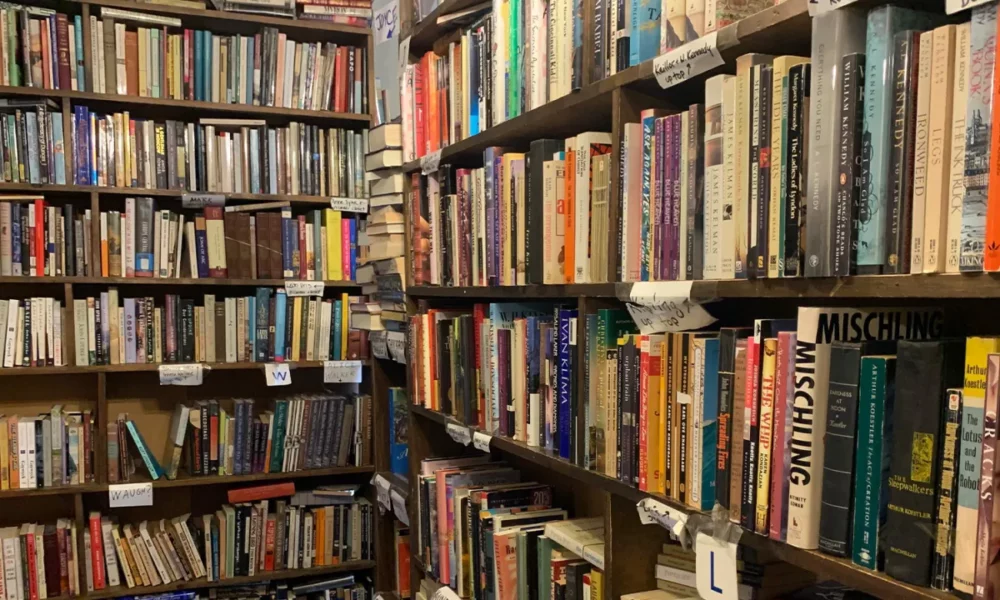5 Surprises I Never Saw Coming While Writing My First Novel
Are you writing your first novel? The journey from the first page to the last was different than you thought it would be, isn’t it? Kris Loomis knows how you feel. In this post, she shares the lessons she learned along the way that surprised her.
In the spring of 2016, I published my first two nonfiction books on yoga and meditation. The following year I published a humorous travelogue about the time my husband and I sold all our worldly possessions and moved to Ecuador with our three-legged cat, as well as a collection of essays about how the practice of yoga has affected my life off the mat.
I am attracted to writing nonfiction because I know it gives me the opportunity to share ideas that may help someone else in their quest to expand their personal horizons, whether that be on a yoga mat or adapting to new cultures.
And while I plan to continue writing nonfiction books in the future, truth is, I have always dreamed of writing a novel.
So, what did I do last year?
I wrote a novel.
Writing a novel is a big undertaking and I knew I would run up against things I couldn’t prepare for, especially since this was my first long fiction project. But I had no idea the number of surprises that awaited me!
I was surprised how different writing a novel is from writing a nonfiction book.
That probably sounds like a silly statement, but I’ve always believed storytelling is the main ingredient in any writing, nonfiction, and fiction alike. I thought because I had written several nonfiction books already I would have an advantage going into my longer fiction writing because I was used to organizing, outlining, and telling stories from my life.
While working on my novel, though, I discovered a big difference between writing fiction and writing nonfiction. That difference can be summed up in one word: facts.
Nonfiction is based on real-life facts. Real-life facts are easy to remember because they’re steeped in truth.
I can’t change how much two plus two is any more than I can change the fact that Jupiter is the fifth planet from our sun or that I moved to Ecuador in the summer of 2013. These are facts, and they are true facts.
But fiction facts can be slippery. And they’re difficult to remember because they aren’t true; the author makes them up as she goes along.
When I was working on my novel’s first draft, I quickly found out that, just like lies, make believe facts are difficult to keep up with.
Often, I would forget a character’s last name or which branch of the military I had sent him to. I thought because I had made up these fiction facts I would remember them, but sometimes I didn’t, and that surprised me.
I was surprised how long it took to finish writing my novel.
I’ve written over fifty short stories and at least that many blog posts since May of 2016. I know how long it’ll take me to write a flash fiction piece or a blog post because I’ve written so many of them.
So, I thought it would be easy for me to guesstimate how long it would take to write a novel. I mean, a novel is divided into sections and I should know how long it takes to write a 2,500-word section based on how long it takes me to write a 2,500-word short story, right?
Wrong.
A 2,500-word short story is contained and complete within that word allotment. But the 2,500-word section of a novel is not contained, rather it’s a small part of a much larger whole.
And rarely is one section of a novel complete in and of itself because it has strands from different plot lines and conflict arcs running through it simultaneously. These strands and arcs resolve themselves eventually, some in this section, some a little farther down the road, but the author has to keep up with all of them, all of the time. And weaving them into a coherent story takes a lot of time.
So, the original schedule I had outlined for finishing my novel was blown to Pluto and back. And I had to be OK with that or face producing a subpar manuscript, which I was not ready to do.
I was surprised how much my confidence wavered halfway through the first draft.
I consider myself to be a pretty confident person. Like Dita Von Teese said, “You can be the ripest, juiciest peach in the world, and there’s still going to be somebody who hates peaches.”
I love that quote and reading it often helped me thicken my skin as a writer these past few years.
So, I was surprised (and dismayed) when I lost all my confidence halfway through the writing of my first draft. I woke up one day and shoved the half-finished manuscript to the back of my sock drawer. Then, I wrestled with self-doubt for more months than I’d like to admit.
Why did I lose my confidence?
Because I bought into the “only write to market” theory.
At that time, I was seeing more and more articles by “big-name influencers” saying the only way to be a successful author was to pick a market and write to it.
This made me doubt that anyone would want to read my story because I hadn’t identified my “market” before I started writing it. I panicked and tried stuffing my story into this market, then that one, but every single market I came across meant a total rewrite of what I had written so far to make sure it met “market” or “genre” expectations.
Then one day, I realized if I wrote to a “market” my original story wouldn’t exist anymore. It would never be told. And I didn’t know if I could handle the thought of my story never being told.
So, after several months of fretting, I dug under my socks, pulled out my abandoned manuscript, and read it.
And you know what? I liked it. And I wanted to finish it.
Now, I don’t think all writers should ignore markets or not pick a market and write for it. This works well for many writers, especially in the top mainstream fiction genres and most nonfiction genres. Heck, all of my nonfiction books are written for very specific markets!
I just think some fiction stories can’t be wrapped up in neat little boxes and shipped only to the people the author speculates wants to read them.
Personally, my reading tastes are eclectic and I tend to gravitate to books that don’t fit so neatly into a genre box. And I have to believe there are other readers out there who, like me, don’t like being pigeon-holed as a “type” of reader.
I started my novel based purely on a story that popped into my head one day, grabbed me hard, and wouldn’t let me sleep at night, not by picking a predestined group of readers I hoped would buy my book someday.
Sure, I know my story doesn’t fit neatly into a pretty little marketing box with a pretty little bow on top. And I know not everyone who reads it will like it. But that doesn’t mean I shouldn’t write it.
I was surprised how deeply I fell in love with my characters.
I’m in the final revision stages of my novel now, and it struck me the other day that I’m soon going to be faced with saying goodbye to all the wacky, fun, infuriating, and lovable characters who have frolicked around in my head for the better part of a year.
Will I mourn them? Most definitely. These are the first characters in my first novel and I fell hopelessly in love with them.
But the only way they will ever have a life of their own is if I let them go. And I will do that because I love them.
I was surprised how stern I had to become with my characters in order to get through the revision process.
Now, I just told you how much I love these guys and how difficult it’s going to be for me to let them go. But, I was surprised during the revision process how bossy some of my characters became!
During the first draft stage, I allowed my characters great freedom. They could do somersaults down the church aisle wearing nothing but a tutu if they wanted to and I didn’t care. But in revision, I had to pull in the reigns.
Ultimately, there can only be one boss at the writing table, and that boss is the author. And the most important job for an author is to tell her story in a way the reader can understand and relate to. And sometimes that means making a character act a certain way to get a point across. Sometimes that means eliminating a character altogether.
During revision, I realized I needed to reassign character roles in two separate scenes. Why? Because a different character would be better able to relate a plot point in a way the reader could more easily grasp.
Unfortunately, this meant one of my minor characters ended up with nothing to do. Ever. And I hate it for her. But the book is better and the story is stronger without her participation. (I still love her, though!)
Yes, the process of writing my first novel brought many surprises and lessons for this novice novel writer:
- I learned that just because I have writing experience doesn’t mean I can sail through a longer fiction project without expecting a few storms.
- I learned to be flexible with my writing timeline.
- I learned not all stories fit into a predestined mold.
- I learned to love my characters while I have them, to love them wholeheartedly before I send them out to fend for themselves in a turbulent readers’ world.
- I learned to be tough with my characters in revision.
Perhaps the biggest lesson I took from this experience, though, is that I can finish a long-term fiction project. I learned I am a finisher. And I can’t wait to see what new surprises await me as I continue writing both fiction and nonfiction to “markets” and beyond.
K. Kris Loomis is the author of After Namaste: Off-the-Mat Musings of a Modern Yogini and Thirty Days in Quito: Two Gringos and a Three-Legged Cat Move to Ecuador. Her debut novel, The Sinking of Bethany Ann Crane, will be released in the summer of 2018. When Kris isn’t at her standing desk writing, she can be found playing chess, folding an origami crane, or practicing a Beethoven sonata on the piano. She lives in Rock Hill, SC with her husband and two cats.
You can find Kris at www.kkrisloomis.com, or connect with her on Facebook, Twitter, or Instagram @kkrisloomis. Kris also writes for the blogging platform, Medium, so look for her there!




